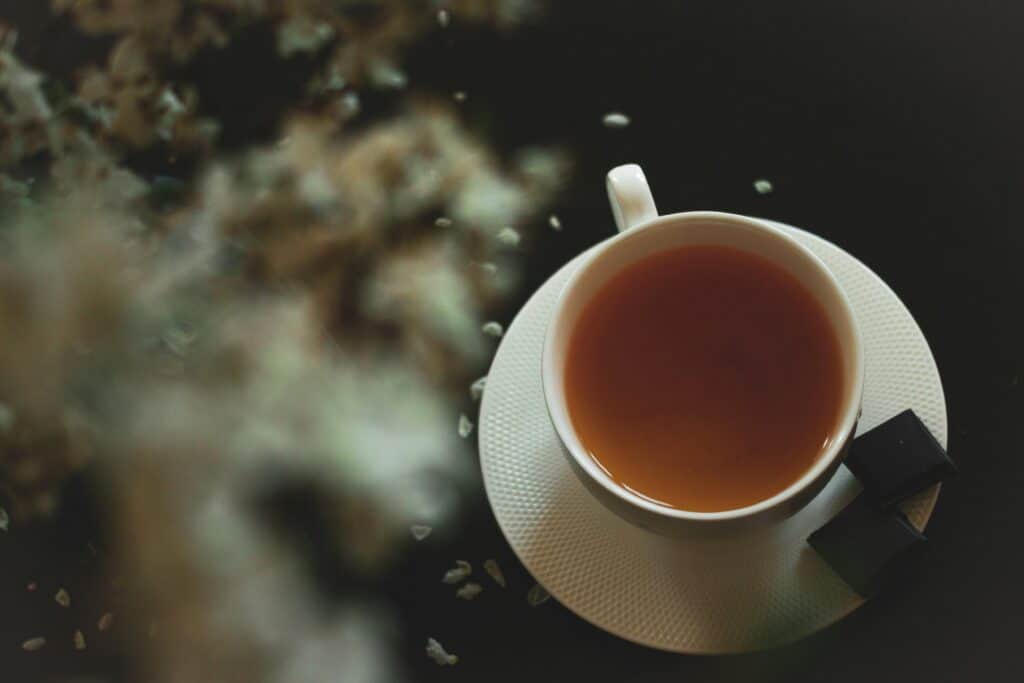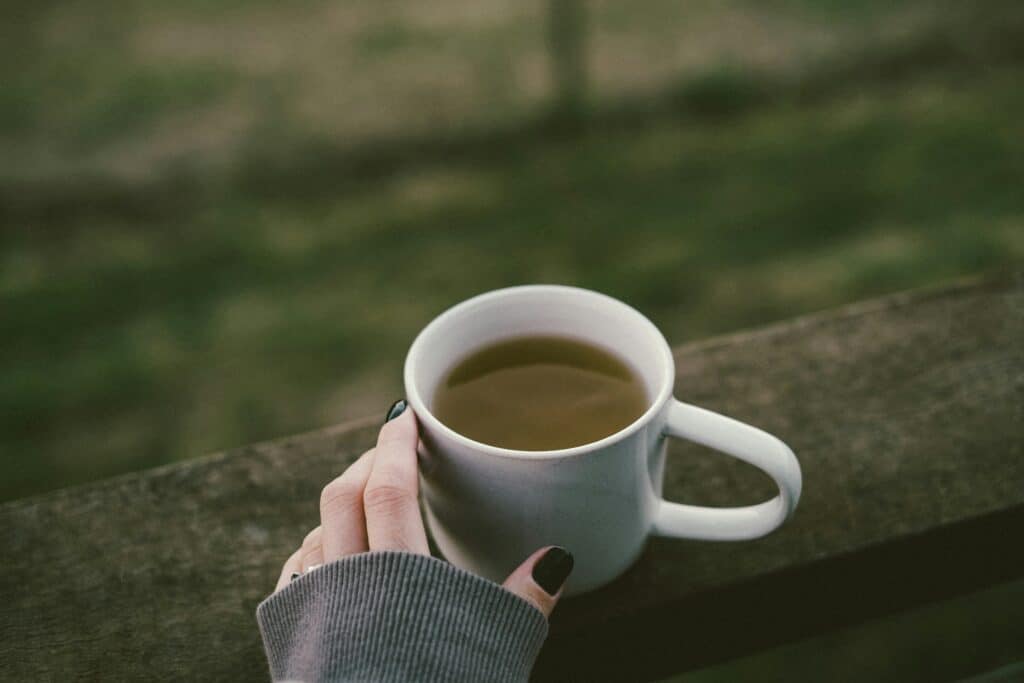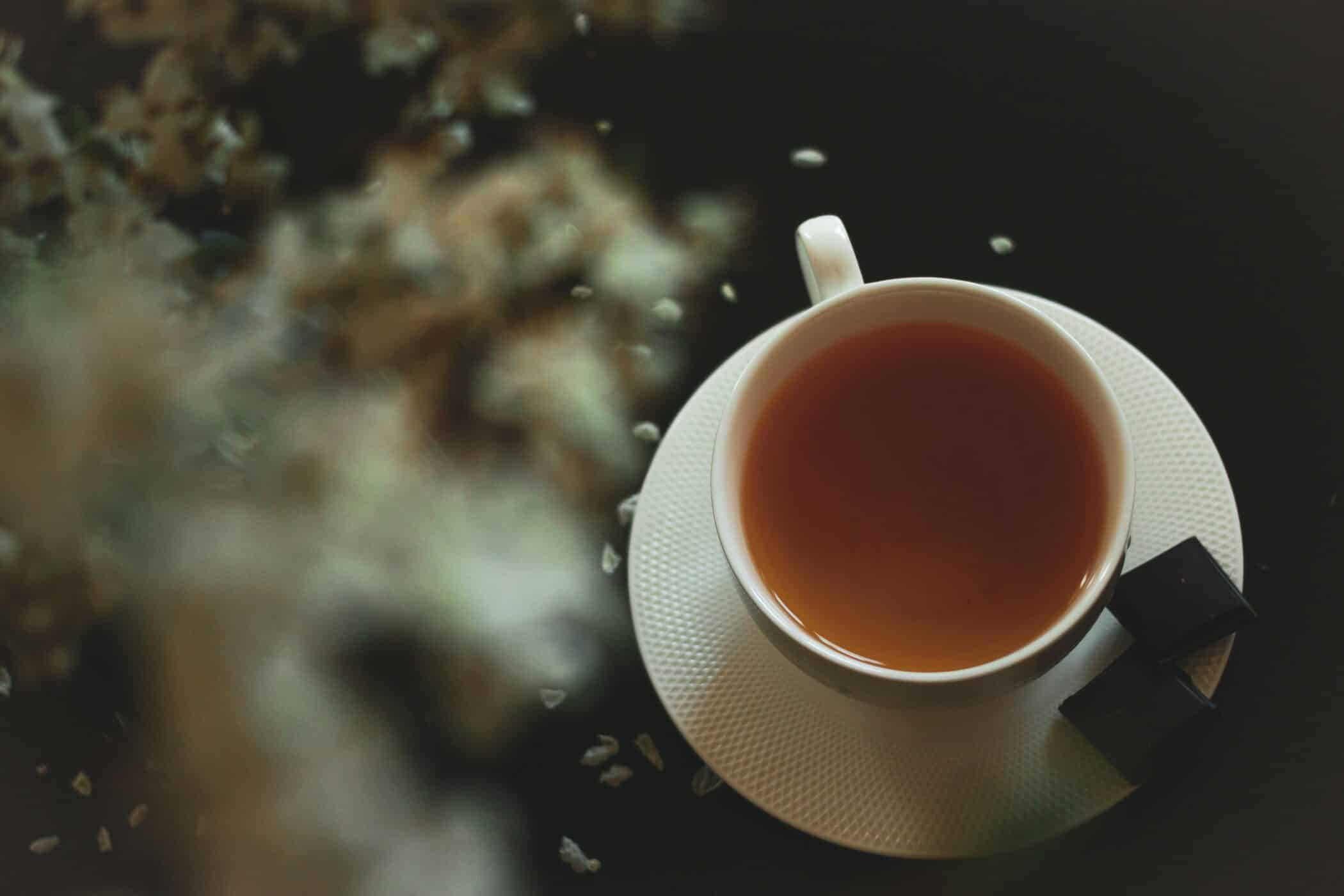
The whispers of anxiety can fill every corner of your day, casting shadows on your peace of mind. It can be extremely unpleasant and block you from completing many tasks you may face for the day. But hold onto hope, for within you lies the power to reclaim your calm. This guide isn’t just about the best tea for anxiety (though we’ll certainly explore that soothing brew!). It’s about crafting a toolkit to manage your anxiety head-on.
Table of Contents
How does tea help with anxiety?
The connection between drinking tea and calming anxiety is in its chemical compounds. Certain teas, like green tea, contain L-theanine or the apigenin found in chamomile, which can calm brain waves and ease tension. Additionally, brewing the tea is a mindful ritual that can de-stress your mind.
Sipping a warm cup of tea is, for many, a synonym for peace and comfort, and there’s scientific evidence to back this up. Here’s how different types of tea can help with feelings of anxiety:
L-theanine:
This compound is found mostly in green and black teas. L-theanine is an amino acid that enhances the production of GABA. That is a brain chemical that cills out anxious thoughts, making you feel more relaxed. L-theanine also cancels the jittery effects of caffeine, so you can still get the focus benefits without the anxious buzz.
Apigenin:
Apigenin, abundant in chamomile tea, is an antioxidant that binds to brain receptors. Its function is to ease tension and inspire sleep. You can view it as a warm hug for your nervous system as it helps quiet your racing thoughts, thus reducing your stress and anxiety levels.
Menthol & carvone:
Peppermint tea’s refreshing coolness isn’t just invigorating – it’s anxiety-busting! These compounds can soothe muscle tension and reduce nausea, a common physical symptom of anxiety.
Best teas for anxiety

The gentle warmth of a steaming cup can be your calming companion in the storm of anxiety. There are many tea options, and not all of them will have that effect. Hence, we’ve compiled a list of the best teas for anxiety, each with its unique blend of soothing properties.
Chamomile tea
This herbal classic is an excellent option for calming anxiety, thanks to its apigenin content. Studies show it reduces anxiety symptoms and promotes relaxation.
Bonus benefits of chamomile tea are:
- improved sleep quality;
- soothing digestion ;
- easing muscle tension.
Lavender tea
The soothing aroma of lavender tea isn’t just pleasant but also an amazing stress relief solution. Lavender’s linalool compound interacts with brain receptors, which induces calmness and eases tension.
Bonus benefits of lavender tea are:
- promotes sleep;
- relieves headaches;
- enhances mood.
Peppermint tea
Peppermint is known for its ability to aid digestion, but did you know it’s also one of the best teas for anxiety? Its menthol contents tackle the common anxiety, nausea, and muscle tension. The refreshing sip of peppermint tea is perfect for physical anxiety symptoms.
Bonus benefits of peppermint tea are:
- freshens breath;
- relieves headaches;
- improves circulation.
Passionflower tea
This floral wonder packs a powerful punch against anxiety. Its flavonoids work on GABA receptors, which help you relax and quiet anxious thoughts.
Bonus benefits of passionflower tea are:
- Improves sleep quality;
- relieves pain;
- may reduce seizures.
Valerian root tea
Although this tea is mostly popular for helping sleep, it also belongs to the best teas for anxiety category. Its calming effects come from compounds like valepotriates and valerenic acid, which interact with the nervous system. The results? Reduced stress and anxiety, with feelings of calmness.
Bonus benefits of valerian root tea are:
- improves sleep quality;
- relieves muscle tension;
- may reduce headaches.
Lemon balm tea
This citrusy delight is a natural mood booster and stress reliever. Its active ingredient, rosmarinic acid, reduces anxiety symptoms and improves cognitive function.
Bonus benefits of lemon balm tea are:
- may ease cold sores;
- improve digestion;
- boost immunity.
Green tea
Green tea does contain some caffeine, which may lead you to believe that it won’t be a good anxiety soother. However, its L-theanine contents will counteract jitters and help you relax while maintaining focus. L-theanine also boosts alpha brain waves, and those effects will induce calmness and reduce anxiety.
Bonus benefits of green tea are:
- boosts metabolism;
- improves brain function;
- protects against heart disease.
Holy basil (Tulsi)
This calming herb gently nudges your stress hormones down and boosts your calming chemicals, which is the perfect combo for easing anxiety. Sleep becomes deeper, mood brighter, and thinking sharper. Another great perk of this anxiety-calming tea is that it keeps your body healthy with its antioxidant powers and even helps with digestion.
Bonus benefits of holy basil (Tulsi) tea are:
- fights bacteria;
- calms inflammation;
- may give your skin a glow.
Ashwagandha tea
Ashwagandha is an ancient herb that comes at you with a powerful duo – shrinking stress hormones and boosting your chill-out chemicals. As your anxiety fades, your brain becomes a sharper, happier place, making it one of the best teas for anxiety.
Bonus benefits of Ashwagandha tea are:
- thyroid hormones balance;
- blood sugar balance;
- keeps inflammation and free radicals in check.
Rooibos tea
This naturally caffeine-free tea for calming anxiety uses flavonoids and theaflavins to calm your cortisol levels and melt away muscle tension. Rooibos tea is also rich in antioxidants, adding to its anxiety-lowering properties with additional health benefits.
Bonus benefits of Rooibos tea are:
- promotes cardiovascular health;
- promotes bone health;
- aids with digestion.
Managing anxiety beyond teas
With our selection of the best teas for anxiety, you’re making a large step in the right direction. However, true peace comes paired with other habits you can implement as soon as today. Let’s break down your toolkit for anxiety management – here’s what you need to focus on:
Move your body to melt stress:
Exercise is one of the best natural stress relief tools. A brisk nature walk, a heart-pumping yoga session, or even dancing to your favorite tunes can release endorphins, your body’s built-in mood elevators. Find activities you enjoy, and let movement become your ally in calming your mind and reducing anxiety.
Anxiety-reducing foods:
Did you know gut health is closely linked to mental well-being? Increasing your intake of prebiotic-rich foods like onions and garlic can nourish your gut microbiome, and you’ll reap the benefit of stress management.
You should also practice mindful eating, savoring each bite and connecting with your body’s hunger signals. By being conscious of your food, you can reduce stress and create a healthy relationship with food.
Furthermore, you must limit processed foods, sugary drinks, and excessive caffeine, as all of those can impact your anxiety levels. If the time is tight, you can always utilize healthy meal delivery to get a nutritious meal plan with perfect ingredients for each meal.
Deep breathing for stress relief:
Deep breathing techniques are your mini-meditations for the nervous system. You can try diaphragmatic breathing or alternate nostril breathing to activate your relaxation response. A practical way to try it out is while your best tea for anxiety cools to drinking temperature.
Proper sleep schedule:
Not being rested can be a major anxiety trigger. Hence, adequate sleep plays an important role in managing anxiety symptoms. Establish a regular sleep schedule, create a calming bedtime routine, and avoid screens before bed. Additionally, pay attention to proper sleep hygiene for a restful night.
Anxiety support groups:
We’re not meant to deal with life’s challenges alone. Joining anxiety support groups or online forums can induce feelings of connection and understanding. Sharing your burdens lightens the load, and connecting with others reminds you that you’re not alone in the fight against anxiety.
Final thoughts
Finding your ideal recipe for inner peace will require some trial and error, but best believe you’ll get there. Experiment and create your blend of strategies that give you the best results. And while you’re at it, choosing your best tea for anxiety is the ideal addition to the mix.
But this exploration doesn’t end here. Let this guide be your springboard, not your finish line. The path to serenity may have twists and turns, but with each mindful step, you pave the way to a calmer, more resilient you. May your journey be filled with the whispers of peace, one cup, one breath, one moment at a time.

